Affiliate links on Android Authority may earn us a commission. Learn more.
HUAWEI P30 Pro vs Pixel 3 XL: The ultimate low-light camera comparison
April 2, 2019
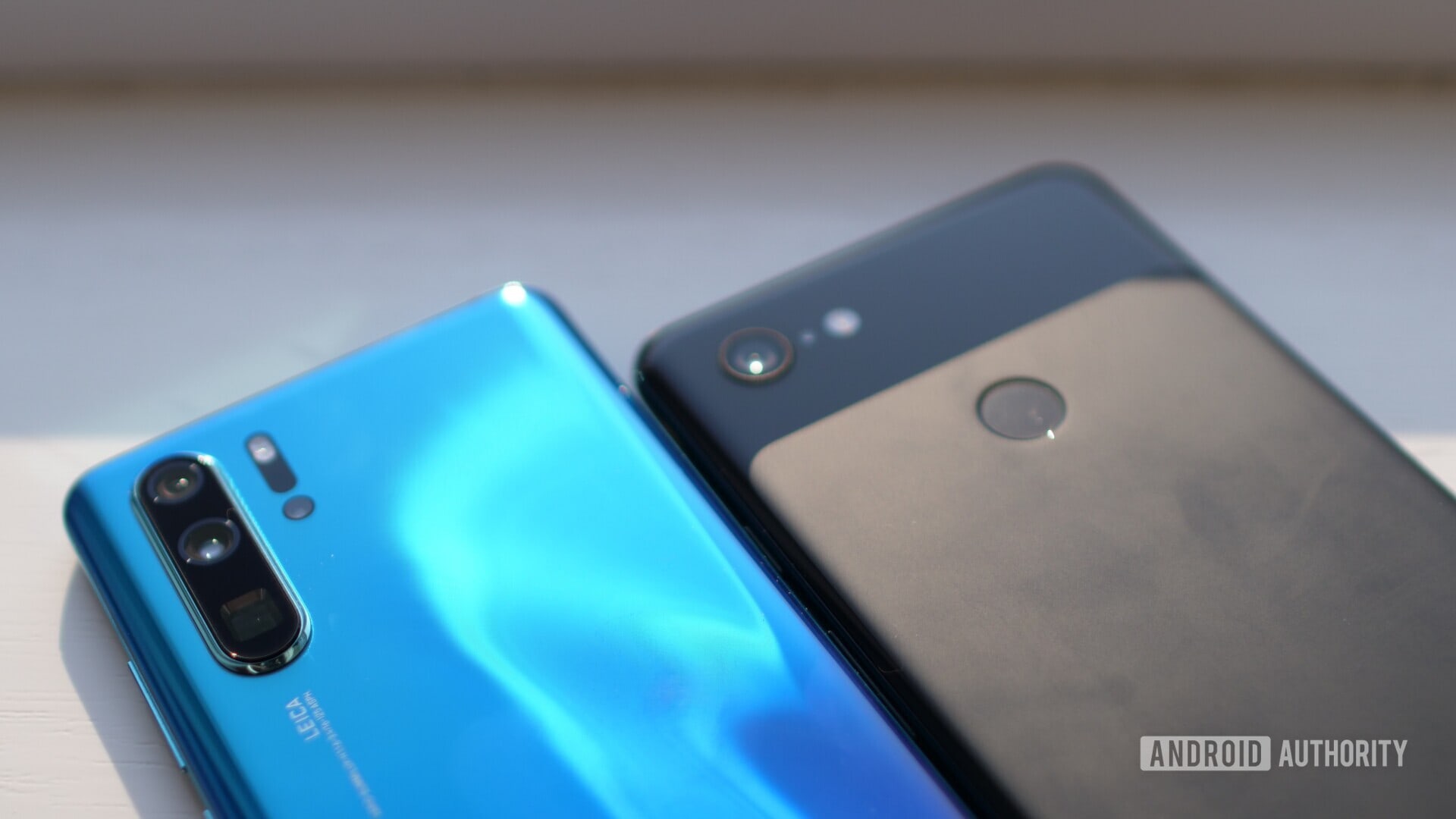
The HUAWEI P30 Pro is so good in low light, it will let you photograph a black cat in a dark room (if the cat cooperates). Surprisingly, that does not mean the P30 Pro is the new undisputed low-light champion.
For this HUAWEI P30 Pro vs Google Pixel 3 XL low-light comparison, I used both phones in auto mode to shoot the same scene from roughly the same angles. I did no editing whatsoever, but images were downsized to save bandwidth. Full-size images are available on Google Drive.
Is the HUAWEI P30 Pro camera worth the hype? See for yourself.
Let’s take a closer look, starting with the area where the P30 Pro performs best: very low light.
Very low light: No contest
The P30 Pro’s ability to shoot in the dark is downright amazing. In fact, the darker it gets, the more stunning the results compared to any other smartphone out there.
The Pixel 3 XL is considered the gold standard in image quality, but in near-dark conditions, it can’t really compete with the P30 Pro.
I shot the images below in my dark kitchen. There was a little light in the room from the window and the LEDs on the appliances, but not enough for my eyes to discern anything more than vague shapes. The Pixel image is completely black; meanwhile the P30 Pro delivers a useable image, even with the purple tint.
Every time I took a photo in the dark, the Pixel 3 XL begged to switch to Night Sight – basically long exposure. With Night Sight on, the Pixel 3 XL comes closer to the P30 Pro, but the HUAWEI phone is still much better.
Here are a couple more examples of low-light images, shot in default mode.
Magic, huh? So, how does it work? Turns out there’s a trick, but it only partially explains the magic. The trick is HUAWEI actually built long exposure capture into the default shooting mode of the P30 Pro. In other words, when you take a picture in very dark conditions, the phone actually captures light for some time after you hit the shutter button. In very dark conditions (like my kitchen in the image above), it takes up to 3-4 seconds. In “normal” low light (in a bar or on a street at night), the image is captured almost instantly, in less than a second.
The phone doesn’t tell you it’s capturing a long exposure shot, but you can verify this by moving the phone right after you hit the shutter. Alternatively, try to shoot a moving subject. Here’s an attempt to photograph my cat in a dark room. As cats do, he refused to stay still during capture, resulting in this see-through effect.
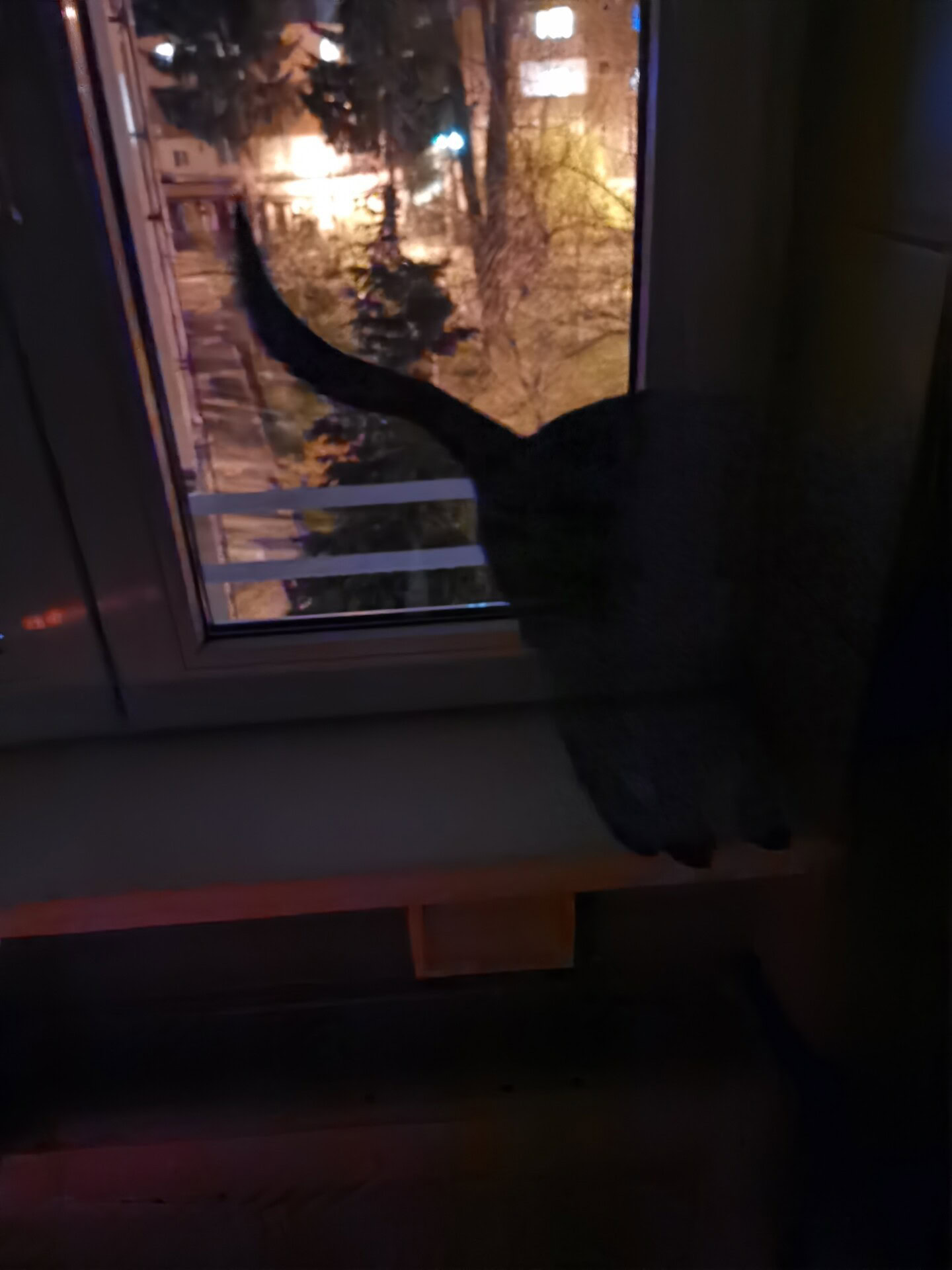
With the caveat that you may need to hold your phone still for several seconds – and you won’t be able to shoot moving objects in very low light – the default shooting mode on the HUAWEI P30 Pro is extremely impressive. I only realized the long exposure trick after an hour or two of using the phone in low light, and in most situations, the image is captured so quickly, you won’t know it happened. That speaks of the quality of the new RYYB sensor and the complex algorithms used to wring every last bit of light out of a scene.
While HUAWEI built long exposure into the default shooting mode, the P30 Pro’s camera still includes a dedicated Night Mode. It captures data for up to 7-8 seconds, providing similar results with the default shooting mode. There’s no real reason to use it from what I’ve seen.
Here are a couple more pics I took with the P30 Pro (there’s no point including the Pixel 3 XL versions, they are all-black and unusable).
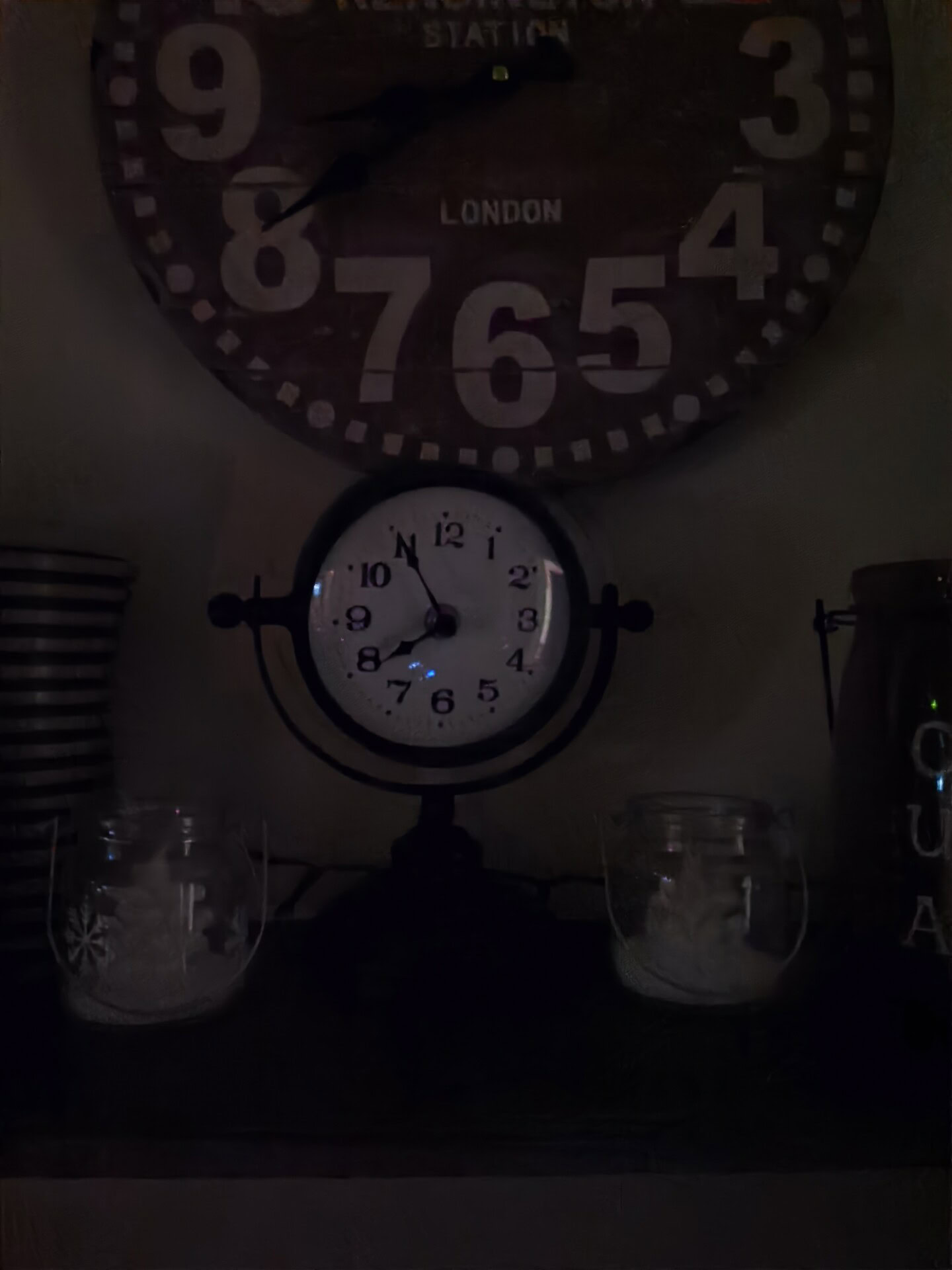
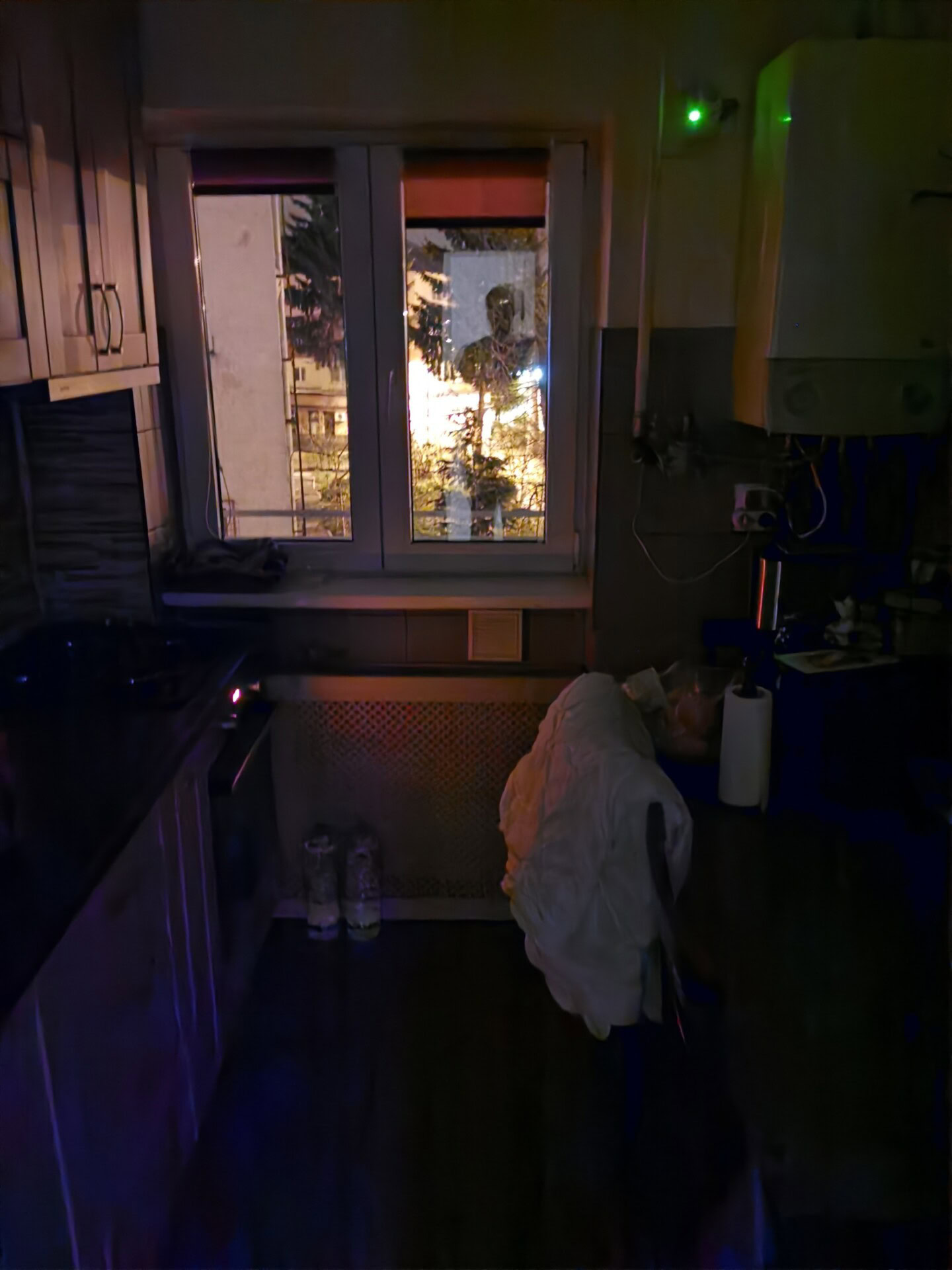
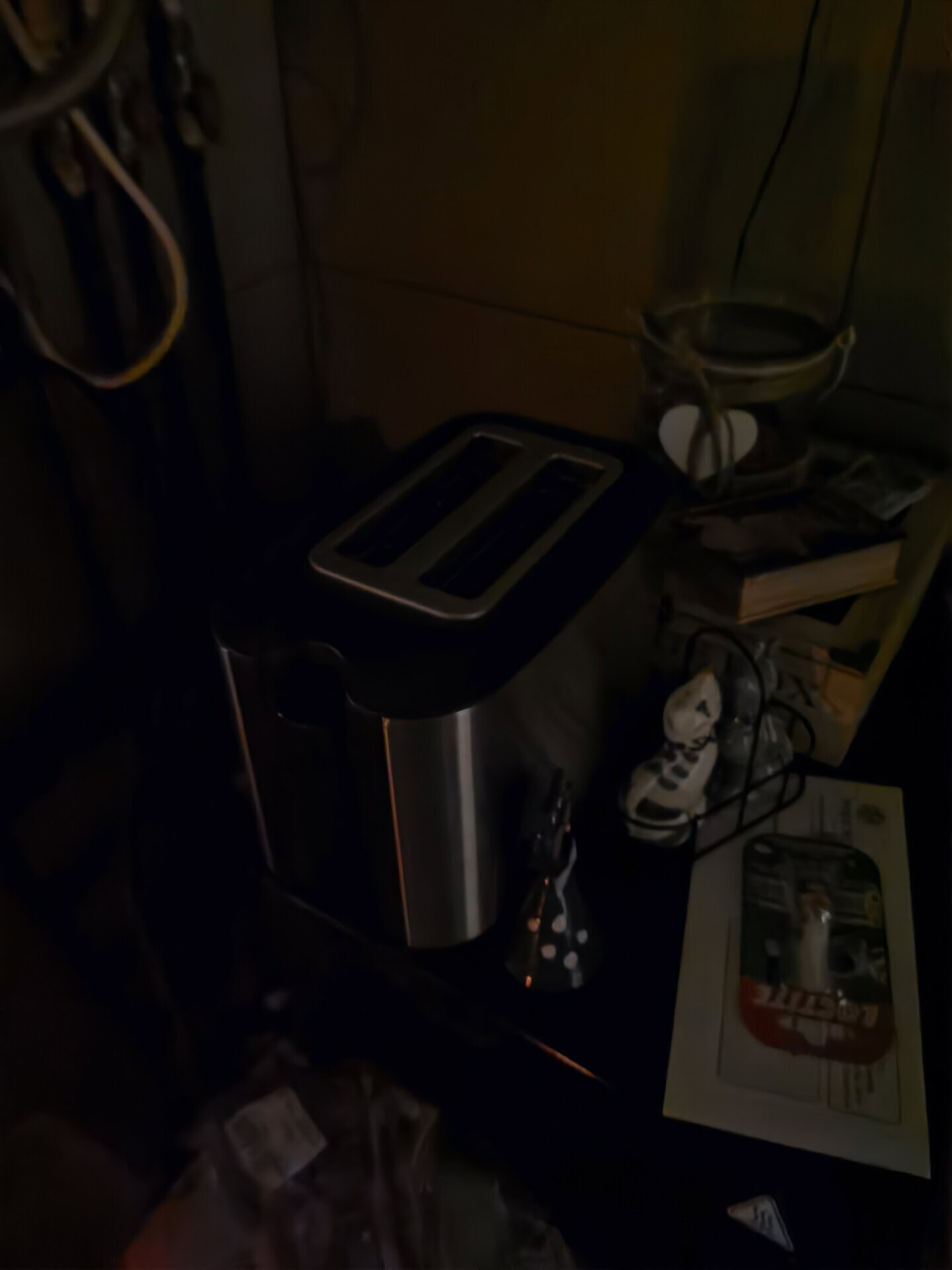
While Night Sight does help the Pixel 3 XL extract more light from a scene, the P30 Pro in default mode does a better job in almost all cases. Usability is much better on the P30 Pro as well: you don’t need to switch to Night Mode or even to think about it – the camera does the work in the background.
“Normal” low light: Even match
Shooting photos in the dark is phenomenal, but 99 percent of the time you won’t need this superpower. How about “regular” low light? Turns out the HUAWEI P30 Pro and the Pixel 3 XL are much more evenly matched. Here are some comparisons.
Winner: HUAWEI P30 Pro Both images are good, but the P30 Pro picture is crisper and a little brighter.
Winner: Pixel 3 XL Good results again, but the Pixel 3 XL gets ahead thanks to the much more true-to-life rendition of the light on the wall. In contrast, the P30 Pro blows out the light hard.
Winner: Pixel 3 XL The image is a bit crisper on the Pixel side and colors a little more pleasant.
Winner: Tie I’ll call this a tie: the P30 Pro blows out the lights, but the colors are a bit nicer. The Pixel 3 XL offers better details and a more accurate light rendition, but the yellowish tint is a bit off. Neither of the two phones accurately depicted the wall’s color, but the P30 Pro came closer.
Winner: HUAWEI P30 Pro The light in the P30 Pro image is more accurate; details are a bit crisper.
Winner: Pixel 3 XL The Pixel 3 XL easily carries this one, though it’s possible the P30 Pro didn’t properly focus.
Winner: HUAWEI P30 Pro It’s the P30 Pro’s time to for an easy win. For these shots I quickly whipped up the phones to capture this girl on a scooter – the Pixel 3 XL wasn’t fast enough apparently.
Winner: HUAWEI P30 Pro As light grows dimmer, the P30 Pro’s edge becomes stronger.
Winner: HUAWEI P30 Pro I’ll give this to the HUAWEI phone, despite the purple lens flare at the top.
Final tally: HUAWEI P30 Pro 5 wins – Pixel 3 XL 1 win – 1 Tie.
Very low light photography aside, I’m calling this HUAWEI P30 Pro vs Google Pixel 3 XL shootout a tie. In my experience, the HUAWEI P30 Pro offered the best results when light was dim, but the Pixel 3 XL came on top in many “normal” low-light shooting situations. Plus, the Pixel seemed to handle bright lights better, without blowing up highlights or prominent lens flares (perhaps the always-on HDR helped). You can see more image samples in full size in this Google Drive folder.
Low light photography is important, but it’s just one aspect of a smartphone camera. We’ll talk more about the full capabilities of the HUAWEI P30 Pro – including that powerful zoom – in future posts and our upcoming review.
Google Pixel 3 revisited: What’s held up and what hasn’t after five months
So, what’s your take?